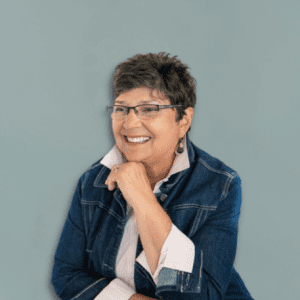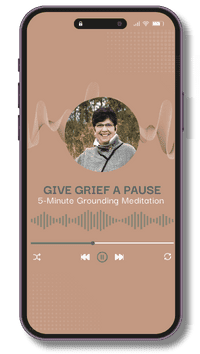A Student’s Journey with Palliative Care and Personal Transformation
The palliative care volunteering experience at the Joan Nicole Prince Home in Scotia, NY (JNPH) instills a deep respect for the process of dying and grief and how it shapes the way we live. The impactful moments that stay with me are filled with deep significance and mystery. My insight comes from the privilege of accompanying individuals at the end of their lives, where the lessons learned are unexpected and enduring.
JNPH works with local colleges and organizations to enrich students’ education through volunteering. A strong bond between Union College and JNPH allows students to elect this experience. I enjoy speaking with the students about their experiences at the Home.
Author Note: I refer to those in the care of JNPH as Guests rather than the familiar reference of patients used in medical care settings and institutions. This is not the policy of JNPH, but it is my personal preference and reminder that JNPH is a home where the dying and their families are invited to be Guests in a loving home to receive holistic, compassionate care from the community until their deaths.
Meet Olivia Hegler
Today, I volunteered with Olivia Hegler, a student volunteer, and asked about her insights from her volunteer experience at JNPH.
Olivia, a student at Union College, Schenectady, NY, is entering her senior year. Drawn to the intersection of science and humanity, she studies neuroscience and anthropology. Her fascination with the brain’s mysteries and the complexities of human behavior made her eager to understand more facets of the human experience. When encouraged by a fellow student to consider a volunteer opportunity at a local social home for the dying, Olivia hadn’t considered this a first-choice option.
Olivia’s academic training had yet to include preparation for the emotional and ethical complexities of palliative and end-of-life care. Yet, driven by curiosity and a desire to confront her discomforts, she volunteered. Over time, she saw it as a chance to apply her compassion in a deeply personal context.
Olivia developed a more profound understanding of end-of-life practices, such as the Do Not Resuscitate (DNR) order. This medical directive, written by a healthcare provider, instructs caregivers not to perform CPR if a patient’s breathing or heart stops. Adherence to the DNR is a requirement for admission to JNPH. While new to this, Olivia explored the impact of its purpose and the choices people need to consider related to it.
Author Note: I prefer the acronym Allow Natural Death (AND) to DNR, as it lacks the negative “do not” and implies services will continue towards a natural end. It emphasizes the natural death process rather than reinforcing what services will be withheld. I advocate for healthcare to transition to this term and there is an effort in the medical community to incorporate it, but has yet to be adopted.
A new perspective.
Through her experiences, Olivia reflected, “I’ve come to realize that resuscitation measures could cause more suffering than I’d ever want someone to endure.” This insight illuminated the importance of honoring the wishes of loved ones, even when our love and devotion for them might cloud our judgment.
Profound moments of understanding.
When asked about Olivia’s volunteer experience at JNPH, she shared that it profoundly influenced her thinking about advocacy. She recalled a particular Guest, who we will call Mary (a pseudonym for confidentiality), with whom Olivia developed a special bond. Mary’s illness caused her significant pain, needing frequent monitoring, advocacy, and interventions as her disease progressed until her death. Being a part of Mary’s care deepened Olivia’s commitment to the importance of advocacy to ensure peace and dignity at the end of life.
Olivia also spoke of another Guest of JNPH, ‘John,’ who was nearing death. She recalled that in caring for him, she inquired whether he wanted to leave the television on in his room. John responded, “It doesn’t matter to me; ask everybody else in the room.” While initially she wasn’t clear about what he meant, Olivia did not dismiss what John was experiencing. She understood that a vision phenomenon can happen as someone nears death and the dying person’s orientation to the physical dimension shifts to another realm.
The phenomenon of visions at the end of life can offer comfort to the dying and their families. Dr. Christopher Kerr’s book Death is But a Dream explores these mysteries, shedding light on the profound experiences that can accompany the dying process.
Transformation has many faces.
Olivia shared that her time at JNPH has been transformative. She discovered that death is not merely a clinical endpoint but is a profoundly human experience filled with moments of connection and compassion.
Her journey taught her that tending to the dying is a delicate balance of joy and sorrow. While death is inevitably sad, it can also be a time of profound beauty and grace. Her care and attentive listening revealed that accepting end-of-life realities, honoring a person’s wishes, and being open to and not resisting death’s mystery led to moments of unexpected joy and peace. She began to view the journey of death and dying as a sacred journey that can be embraced with listening, compassion, and love rather than fear.
Olivia is a cherished and invaluable part of the Joan Nicole Prince Home. She blends her understanding and scientific knowledge with an appreciation for the complexities of life and death. Her empathy and balanced perspective on handling the end of life with dignity and compassion truly enhance the organization’s mission.
Carole Heaney, RN, MS, volunteers at the Joan Nicole Prince Home as a death literacy advocate, death doula, and grief guide. For more resources on death, dying, and grief, visit caroleheaney.com.


